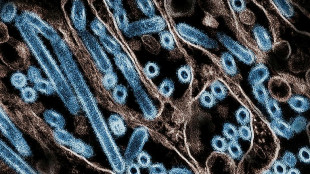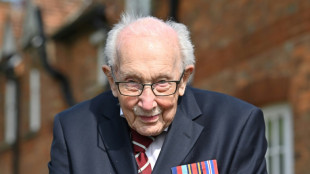

EU authorises sale of vaccine against RSV in infants
The EU on Friday authorised the sale of a vaccine to protect infants from respiratory syncytial virus (RSV), a disease that in worst cases can lead to pneumonia and bronchiolitis.
The bloc-wide marketing authorisation of the jab, called Abrysvo and made by Pfizer, follows approval by the European drug watchdog, the European Medicines Agency (EMA) last month.
The United States' Food and Drug Administration gave its own authorisation for the same vaccine for infants on Monday.
The European Commission said its authorisation of Abrysvo for infants, and also in older adults, was made ahead of the European autumn and winter, when cases surge.
"This is our first EU-authorised RSV vaccine that not only protects older adults but also infants, already from birth," EU health commissioner Stella Kyriakides said.
She noted that RSV in children was "a leading cause of hospitalisation in the EU" and she looked forward to the 27 member countries making the shot available under national vaccination programmes.
The EMA said the shot is administered to pregnant women so that babies are born with RSV immunisation lasting for six months.
While the EU-wide authorisation was a first for infants, another RSV vaccine, a drug called Arexvy made by GlaxoSmithKline, was already approved across the bloc since June for people over 60. It will now be joined by the Pfizer jab for adults in that age group.
RSV normally causes mild, cold-like symptoms, but can be serious for infants, the elderly, those with weak immune systems and underlying conditions.
In severe cases it can cause pneumonia and bronchiolitis, an inflammation of the small airways deep inside the lungs.
The approval of the new RSV vaccines is the culmination of a decades-long hunt to protect vulnerable people from the common illness.
Abrysvo is a bivalent vaccine -- meaning it protects against more than one virus strain -- and when given to a person, their immune system generates specific antibodies and T-cells (immune system cells) that help prevent RSV infection.
British-Swedish pharmaceutical firm AstraZeneca and France's Sanofi have already had an RSV therapeutic drug called Beyfortus on the EU market since November last year, for use in infants needing medical attention.
Analysts predict the market for preventing RSV could be worth more than $10 billion in the next decade, with similar shots from other makers including Moderna expected to follow soon.
A.Edwards--MC-UK




